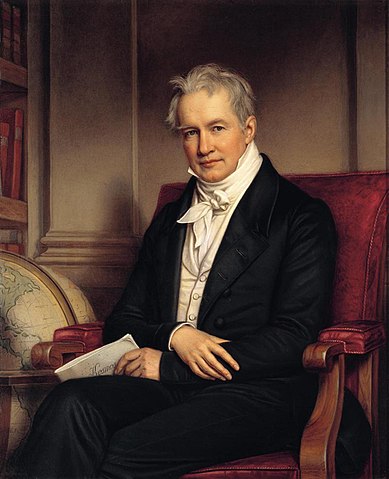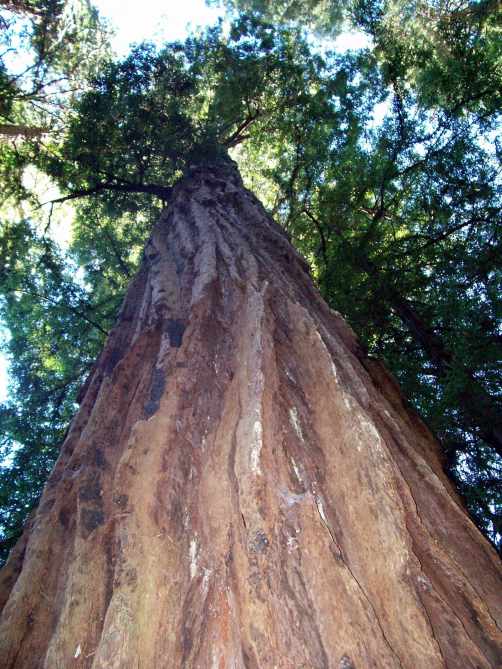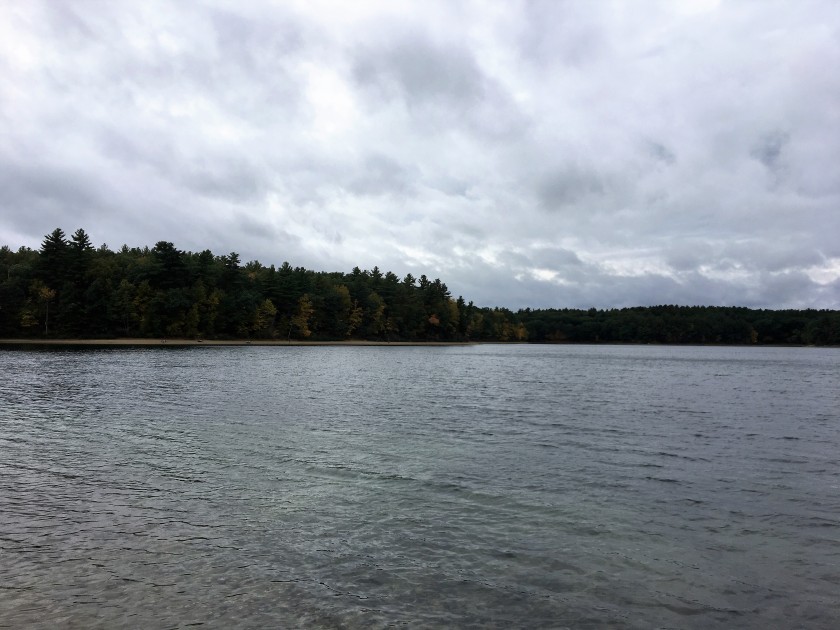
In The Invention of Nature, Andrea Wulf seeks to reintroduce to the English-speaking world a once famed but largely forgotten figure who shaped how we view nature: Alexander von Humboldt.[*] Prior to Humboldt’s scientific exploration of South America, western society largely assumed nature behaved much like a complex machine that was, for the most part, stable and unchanging. Many believed that nature existed for humanity’s use, and some even argued, as French naturalist George Louis de LeClerc (Comte de Buffon) did, that wilderness was a wasteland that required civilizing. No one, as Wulf emphasizes, concerned themselves with the possibility that nature could be damaged or destroyed. However, Humboldt’s observations in South America (then a colony of the Spanish Crown) led him to a very different conclusion.[†]
The “Web of Life”
While in South America, Humboldt intended to collect plant and animal specimens and record empiric data (eg, air and water temperature) as most naturalists did. However, the Prussian-born polymath had an additional aspiration: he wanted to see how natural forces worked in concert. Seeking a “big picture” view of nature, Humboldt’s approach was interdisciplinary and incorporated aspects of art, philosophy, poetry, history and politics. Humboldt’s choice to be inclusive and to compare across disciplines was unique, given that most scientific studies tended towards specialization and excluded the arts. His study of nature was not merely intellectual but also embraced emotional responses to the natural world.
With this “global view”, Humboldt’s radically revised the way in which nature was perceived. Far from the faithful machine depicted by René Descartes and others, Humboldt realized that nature was a delicately balanced “web of life”, one that human could tear asunder. While at Lake Valencia, Humboldt discovered that clear cutting a forest for cash crops yielded barren fields, a dried up river, and soil erosion. The first to recognize forests’ ecological role (ie, cooling effect, retention of water and soil), Humboldt would warn against irresponsible farming and mining practices. Thus, he became a forerunner of the environmental movement.

Widespread Influence
In writing about Humboldt, Wulf seeks to illuminate the reach of his influence from his time to ours. She describes contemporary scientists whose careers were supported, launched, or even inspired by Humboldt, among them Charles Darwin. Humboldt’s prominence in the scientific community (she refers to him as its “nexus”) existed alongside his ardent support for the free exchange of ideas and democracy.[‡] In South America, he witnessed the horrors of slavery and the abuses visited on the indigenous people whose ancient cultures were destroyed. His writings condemn slavery and challenge the supposed savagery of indigenous peoples. Símon Bolívar met Humboldt in Paris and found in Humboldt someone who admired his homeland and shared his disgust with Spanish colonial rule; their conversations would lead Bolívar to consider the possibility of revolution. Humboldt’s vision of nature and popular publications resonated with writers such as English Romantic poets Samuel Coleridge and William Wadsworth; poets Edgar Allan Poe and Walt Whitman; American Transcendentalists Ralph Waldo Emerson and Henry David Thoreau; and nature writers such as John Muir. Wulf also devotes several chapters to disciples of Humboldt who carried on his legacy.

Humboldt’s Legacy
Wulf’s admiration for Humboldt is both deserved and contagious. Discovering the “hidden” history behind concepts I studied in my undergrad science courses was exciting:[§] I had no idea that adventurous undertakings such as mountain climbing led to vegetation and climate zones, let alone who was responsible for this new way of categorizing plants. And as someone with a degree in literature and one in with environmental studies, reading about Humboldt was fascinating as I saw names from two very disciplines intermingle, whether they influenced him (eg, Johann Wolfgang van Goethe, Immanuel Kant) or he inspired them (eg, Darwin, Thoreau, Muir). It truly is amazing to see how interdisciplinary knowledge unites to change the world. And it’s perhaps for this reason that Wulf hopes to restore Humboldt to his former prominence. As we now face human-precipitated climatic changes he once warned against, the interdisciplinary approaches he used will likely be needed. According to Wulf, Humboldt may well be the inspirational figure to guide us through these difficult times.
NOTES:
[*] Wulf posits that Humboldt’s ideas potentially were so self-evident that his contributions was forgotten but considers the anti-Germany sentiment following the outbreak of World War I as a more likely cause.
[†] An earthquake that occurred not long after Humboldt’s arrival left him shaken as it forever dispelled the notion that nature was static.
[‡] Some considered his acceptance of a pension from the Prussian monarchy hypocritical, while Humboldt looked at it more pragmatically: he could not pursue his academic studies without financial support. He did attempt to use his position to positively influence the monarchy and would successfully ensure that all slave who entered Prussia would be freed immediately. Humboldt’s commitment to democracy also meant he was bitterly disappointed when the unification of Germany led to another monarchy in place of the federation he favored.
[§] And nowhere near as awkward as the time I realized my knowledge of the scientific method did not extend to its lengthy history.


As a small note, it looks like a draft of this post went live before I finalized my copy–I’m assuming I hit the wrong button while saving. Apologies to anyone who found this confusing! This is the final draft as of 20 January 2018.
LikeLike